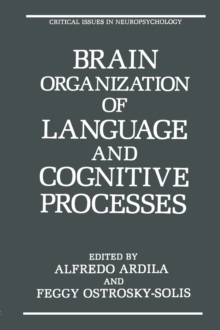
Handbook of Neuropsychological Assessment : A Biopsychosocial Perspective PDF
Edited by Antonio E. Puente, Robert J. McCaffrey
Part of the Critical Issues in Neuropsychology series
Description
The growth of clinical neuropsychology has been unprecedented.
This growth has been oriented more toward the provision of than toward the foundation for services.
Thus, while a greater number of psychologists are performing a greater number of neuropsychological procedures, there seems to us an uneven parallel growth between these services and the empirical foundations for them.
It should come to no one's surprise that increasingly aggressive attacks on the field have been leveled.
Despite these attacks, clinical neuropsychology con- tinues to enjoy exceptional growth within psychology and acceptance by other health practitioners, insurance companies, legislators, judges, juries, and above all, consumers of our services.
Growth without self-reflection is a dangerous enterprise, as is growth without directions.
We find it disconcerting that existing and limited "self- analysis" has assumed that neuropsychological dysfunction is immune to the same variables that affect psychological dysfunction.
Some attention has been paid to the most obvious ones, such as age, but all others have been ignored and/ or misunderstood.
This neglect has spawned a body of knowledge replete with questionable data and unfounded conclusions.
Hence, it is surprising that clinical neuropsychologists consider themselves to be more scientifically sound than their regular clinical counterparts.
Information
-
Download - Immediately Available
- Format:PDF
- Publisher:Springer US
- Publication Date:11/11/2013
- Category:
- ISBN:9781489906823
Information
-
Download - Immediately Available
- Format:PDF
- Publisher:Springer US
- Publication Date:11/11/2013
- Category:
- ISBN:9781489906823










